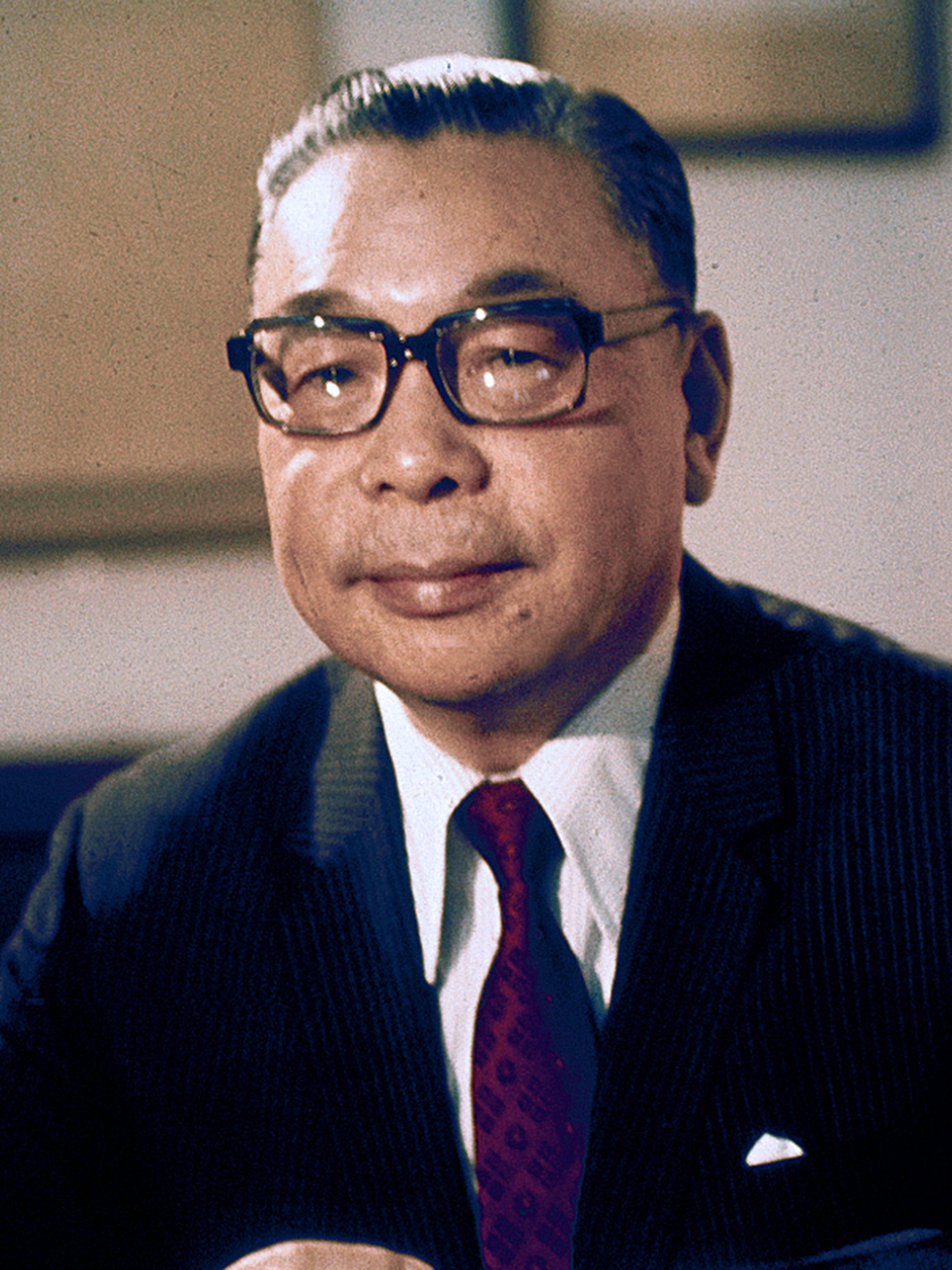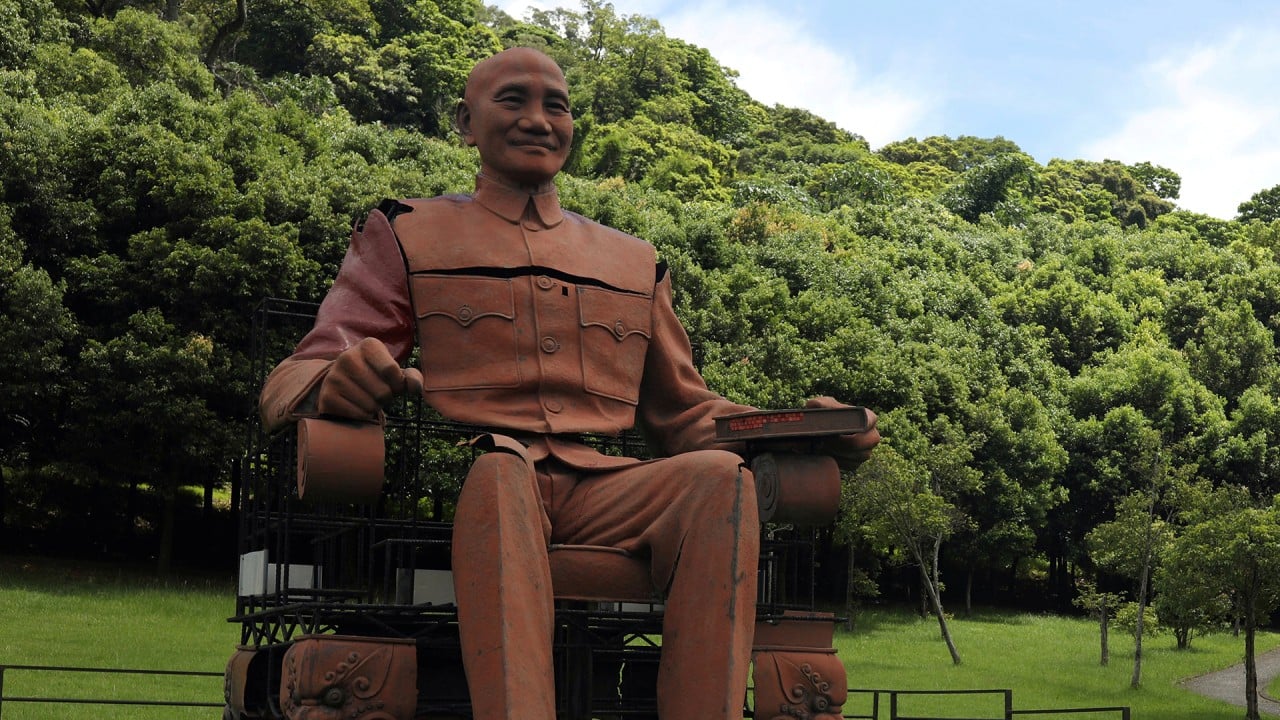
In Taiwan, is another member of the Chiang dynasty on the rise?
- Wayne Chiang Wan-an, the great-grandson of Chiang Kai-shek and grandson of Chiang Ching-kuo, considers running for mayor of Taipei
- But the Chiangs’ checkered records as Taiwan presidents, observers say, could be more of a liability than an asset
Chiang, 43, had been a corporate lawyer in the United States before returning to Taiwan to run for legislator, and in his first two terms has been rated as one of the best and most attentive lawmakers by local political monitoring groups.

In the latest survey released by the cable news network TVBS on January 20, the US-educated Chiang drew a support rate of 40 per cent, Chen had 29 per cent and Huang 19 per cent.
In an interview with Taiwan’s online news outlet PinView on Thursday, Chiang hinted that he might run for mayor, saying he felt he had an obligation to do so.
Those challenges, he said, included transforming business and digital structures, improving infrastructure facilities and working environments and attracting foreign talent.
He said he hoped to strengthen Taipei’s competitiveness so that it could catch up with the latest global trends.
“I think it is my duty to do all these in order to make things better,” Chiang said.
Taiwan votes to erase Chiang Kai-shek’s legacy of terror
In the past month, Chiang – regarded as the KMT’s best bid for Taipei mayor – has reportedly met with influential local politicians, including city councillors and faction leaders. He has also increased his constituency services to areas beyond his electoral district in Zhongshan and Songshan in Taipei.
According to Taipei-based Liberty Times, Chiang held a banquet last month for a number of political commentators, a move seen as part of his election plans.
Han Kuo-yu, a former Kaohsiung mayor and KMT presidential candidate who remains highly popular within the “deep blue” or “pro-cross-strait unification” camp, told Taipei-based PoP Radio last month that Chiang was a “good choice”.
While Chiang appeared to be a potential front runner, observers said, he faces several challenges – in addition to the persistently falling popularity of the KMT.
“It looks like it will be a three-way race in Taipei. Though Chiang appears to be leading, his chances actually would be hampered by deputy mayor Huang Shan-shan, who has support from both the People’s First and Taiwan People’s parties,” said Julian Kuo, a political commentator.
He noted that Chiang would have to gain more than 50 per cent of the votes to prevent a vote-splitting that would help the DPP candidate to win.
And then there is the political dynasty he comes from. Both KMT and DPP observers said that Chiang’s family history could be more of a liability than an asset.
Rather than giving him an edge, some observers said, that history might be held against Chiang.
“His opponents definitely would use what his great-grandfather and grandfather had done to attack him,” Chiu Yi, a former KMT legislator, said.
Chiang Kai-shek – who led the Nationalist forces to set up an interim government in Taiwan in 1949 after losing a civil war to the Chinese Communists on the mainland – has been trumpeted by the DPP as a dictator who ruled the island with iron and blood.
The reviews of Chiang Ching-kuo are more mixed, with both praise and scorn. He continued the hardline policies of his father in the first few years of his 10-year presidency, but lifted martial law in 1987, which eventually led to democratisation of Taiwan and its economic development.
In his PinView interview, Chiang, who was born three years before his great-grandfather died, said he had never met his grandfather. Neither, he said, had his father, John Chiang, who along with his twin brother Winston were reported to be illegitimate sons of Chiang Ching-kuo.

“My father told me he once saw Ching-kuo at a National Day reception party, and my father served as the North American affairs director of the foreign ministry at that time. My father said he looked at him from a distance and they had eye contact without saying anything,” Chiang said.
Only after he went to senior high school did his father tell him and his two sisters that they were Chiang Ching-kuo’s grandchildren, Chiang recalled.
Asked what he would do if his opponents used his family history to attack him, Chiang only said: “I would not forget my roots.”


